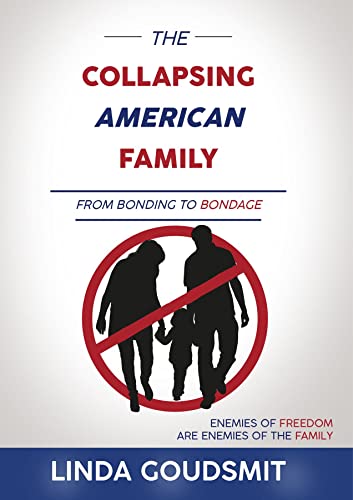
By Brian Massie, Lake County, Ohio reporter
The political and cultural divide in the world is being exacerbated by the lack of truly free, independent, truthful news sources.
You may want to read this entire article by Rebecca Strong as she “pulls back the curtain” to what has happened to a once robust, trustworthy industry. We have provided some excerpts of this wonderful article.
*****
To read the entire article, highlight the link and open it in your browser.
https://childrenshealthdefense.org/defender/6-companies-control-90-percent-read-watch-hear-why-care/?utm_source=salsa&eType=EmailBlastContent&eId=a75c0805-36b7-4547-87b6-68c25c45d379
6 Companies Control 90% of What You Read, Watch and Hear. Here’s Why You Should Care.
Ever-mounting media consolidation has narrowed the perspectives the public is privy to. Ownership and funding of these corporations are riddled with conflicts of interest and Big Tech companies are outright censoring and demonetizing independent outlets.
By Rebecca Strong
Excerpts from the article:
“We can have democracy in this country, or we can have great wealth concentrated in the hands of a few, but we can’t have both.” — Supreme Court Justice Louis D. Brandeis
In a recent Twitter survey I conducted, nearly 90% of people rated their trust in mainstream media as either “very low” or “low.” And is it any surprise? Ever-mounting media consolidation has narrowed the perspectives the public is privy to, ownership and funding of these corporations are riddled with conflicts of interest, crucial stories keep suspiciously getting buried and big tech companies are outright censoring and demonetizing independent outlets trying to break through the noise.
If you examine the history of countless media mergers and acquisitions over the last several decades, you’ll come to an unsettling discovery: local, independent outlets are dying out in droves. The result? The vast majority of the news you digest is tailored to serve the interests of corporations and their leaders, rather than citizens.
In fact, Americans spend an average of 12 and a half hours per day consuming news via the television, Internet, newspapers, magazines and radio.
The media molds our society in a myriad of ways. It tells us which world events deserve our attention. It has the power to affect what we buy. In shaping our opinions on everything from immigration, healthcare, education and the environment to individual political candidates, it can also have significant sway when it comes to elections.
So, how did we get here? During the 1940s, the Federal Communications Commission (FCC) adopted a number of rules to limit ownership of multiple local radio stations and television stations, as well as multiple national broadcast networks.
Then in the ‘70s, the FCC banned one company from owning both a newspaper and TV or radio station in the same market. But during the ‘80s, major deregulatory moves made by Congress and the FCC under then-president Ronald Reagan’s administration increased the number of TV stations any single entity could own, triggering a wave of media mergers.
The real kiss of death to local news happened in 1996 when President Bill Clinton signed the Telecommunications Act, which allowed large corporations already dominating the media market to further expand their control via acquisitions and mergers.
Today, just six conglomerates — Comcast, Disney, AT&T, Sony, Fox and Paramount Global (formerly known as ViacomCBS) — control 90% of what you watch, read, or listen to. To put this into perspective: that means about 232 media executives have the power to decide what information 277 million Americans are able to access. In 2021, the “big six” banked a total of more than $478 billion in revenue. That’s more than both Finland’s and Ukraine’s GDP combined.
Nowadays, there are entire cities and towns across the country with no local coverage. According to a 2018 study, more than 2,000 U.S. counties (63.6%) have no daily newspaper, while 1,449 counties (46%) only have one. Meanwhile, 171 counties — totaling 3.2 million residents — have zero newspapers whatsoever.
These areas are known as “news deserts,” and studies have shown they have fewer candidates running for mayor, lower voter turnout and more government corruption. When citizens are left with a colossal information gap, they’re forced to turn to social media to get their news.
As these media corporations continue to expand their power, they rake in ever-growing profits — which then translates to more political influence. Not only do owners of media giants contribute money directly to campaigns, but their outlets control the discourse around them. And the larger the conglomerate, the more easily and effectively they can lobby to kill regulations and pass laws that further their domination.
As former Walt Disney chief executive Michael Eisner put it in an infamous leaked internal memo:
“We have no obligation to make history. We have no obligation to make art. We have no obligation to make a statement. To make money is our only objective.”
In a 2000 Pew Research and CJR survey of more than 300 journalists at local and national outlets, 41% admitted to either purposely avoiding newsworthy stories, “softening the tone” of stories to benefit the interests of their news organizations, or both. Half of investigative journalists said newsworthy stories often or sometimes go unreported because they could hurt the financial interests of their organization, and 61% stated they believe corporate owners exert at least a fair amount of influence on decisions about which stories to cover.
*****
Advertisements


*****
Categories: Free Speech Zone

